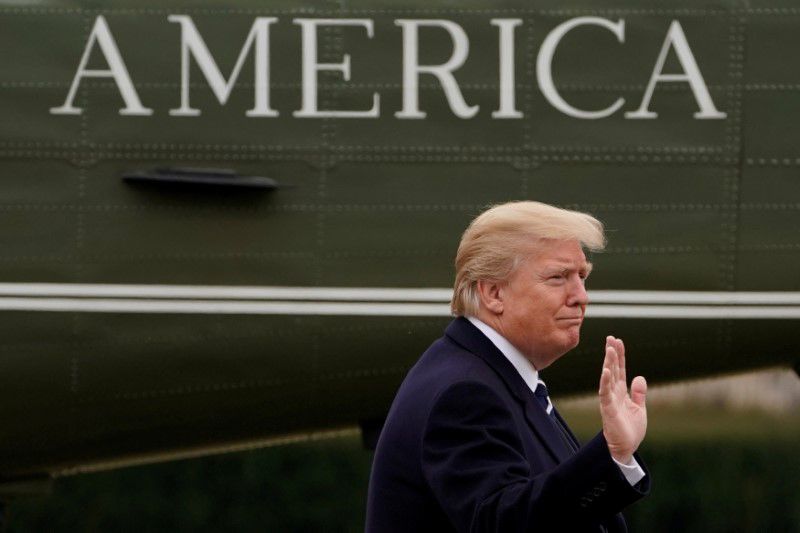 Image Source: Investing.com
Image Source: Investing.com
Surprise Pick Signals Push for Pro-Growth Energy Infrastructure and Regulatory Realignment
President Donald Trump is set to name David Rosner as the new chairman of the Federal Energy Regulatory Commission (FERC), according to a White House official cited by Axios. The move marks a significant pivot in Trump’s energy policy strategy, as Rosner—a Democrat appointed to the commission by former President Joe Biden—is seen as a centrist with a pragmatic approach to energy regulation. His appointment comes amid broader efforts by the Trump administration to assert greater control over independent regulatory bodies and accelerate infrastructure development aligned with its America First energy agenda.
Key Highlights of the Appointment
David Rosner, currently serving as a FERC commissioner, will be elevated to chairman by President Trump.
Rosner was originally appointed to FERC by President Biden and previously served as an aide to Senator Joe Manchin.
The White House emphasized Rosner’s commitment to advancing Trump’s energy policy goals, including support for natural gas and data center infrastructure.
His appointment follows the resignation of former Republican Chair Mark Christie, who stepped down on Friday.
Rosner’s Profile and Policy Leanings
David Rosner is widely regarded as a centrist with a strong background in energy policy and infrastructure development. His tenure at FERC has been marked by a focus on grid reliability, permitting efficiency, and support for natural gas expansion.
Key attributes:
Advocates for balanced energy development, including fossil fuels and renewables
Supports streamlined permitting for power plants and transmission lines
Has played a role in accelerating infrastructure for AI-driven data centers
Rosner’s selection has drawn mixed reactions. While some industry stakeholders view him as a pragmatic choice capable of delivering results, environmental groups such as Friends of the Earth have criticized his perceived favorability toward fossil fuel interests.
Strategic Implications for Energy Policy
Infrastructure Acceleration Rosner is expected to prioritize the approval of energy infrastructure projects, including pipelines, LNG terminals, and high-capacity transmission lines. This aligns with Trump’s goal of boosting domestic energy production and reducing regulatory bottlenecks.
Natural Gas and Grid Reliability With Rosner at the helm, FERC may adopt a more favorable stance toward natural gas as a bridge fuel, supporting grid stability while renewable capacity scales up. His leadership could also influence reliability standards and market reforms.
Regulatory Realignment Trump’s decision to appoint a Democrat to lead FERC reflects a strategic effort to install action-oriented individuals regardless of party affiliation. However, the administration is also pushing for confirmation of two Republican nominees—Laura Swett and David LaCerte—who could shift the commission’s balance in the coming months.
Political and Market Reactions
Rosner’s appointment is seen as part of Trump’s broader plan to reshape independent commissions and align them more closely with executive priorities.
Energy markets may respond positively to a more infrastructure-friendly FERC, particularly in sectors like natural gas and data center power supply.
Critics argue that the move undermines the independence of regulatory bodies and could lead to politicization of energy oversight.
Outlook and Next Steps
Rosner’s term as chairman may be transitional, depending on the confirmation of new Republican commissioners who could eventually assume leadership.
In the interim, Rosner is expected to fast-track key projects and implement reforms that reflect Trump’s energy vision.
The White House has signaled that future appointments will continue to prioritize results-oriented leadership over traditional partisan considerations.
Conclusion
President Trump’s decision to appoint David Rosner as chairman of the Federal Energy Regulatory Commission marks a strategic shift in energy governance. With a focus on infrastructure, natural gas, and regulatory efficiency, Rosner’s leadership is expected to accelerate Trump’s America First energy agenda. While the move has sparked debate over regulatory independence, it underscores the administration’s intent to drive rapid development in energy and digital infrastructure.
Sources: Axios, Reuters, Investing.com.
Advertisement
Advertisement




